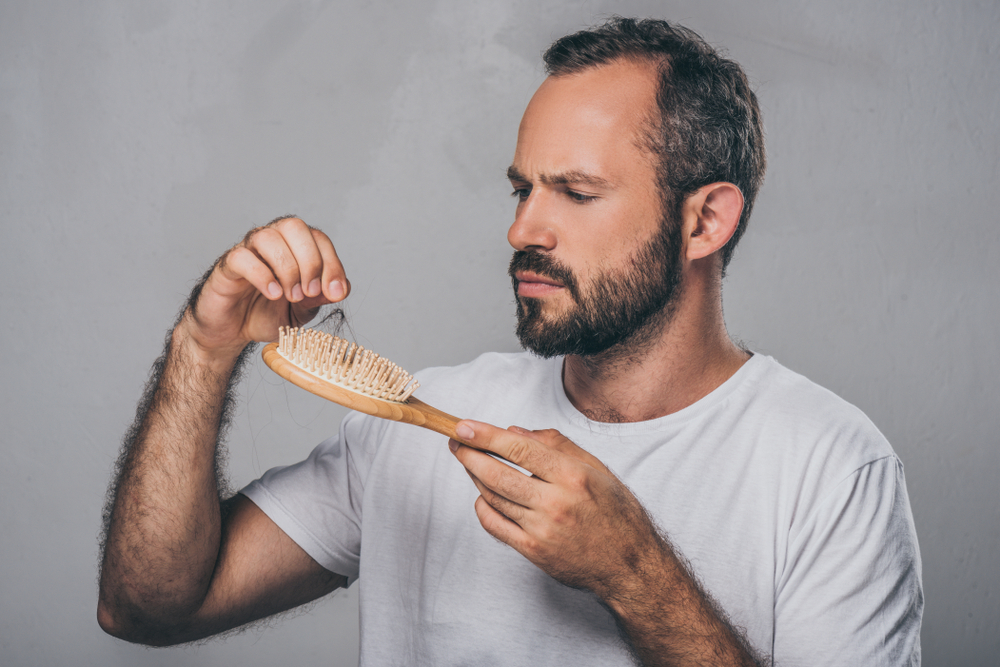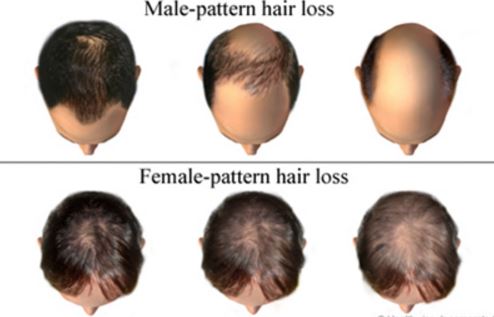does testosterone pellets cause hair loss Testosterone and hair loss, low, high testosterone, in women, therapy
Testosterone is an important hormone that plays a significant role in a variety of bodily functions. From promoting muscle growth to regulating mood, it has a powerful impact on our overall well-being. However, one aspect often associated with testosterone is hair loss. In this post, we will explore the relationship between testosterone and hair loss in both men and women.
The Role of Testosterone in Hair Loss
Hair loss is a complex issue that can be influenced by numerous factors, such as genetics, age, and hormonal balance. While testosterone itself does not directly cause hair loss, its conversion into a hormone called dihydrotestosterone (DHT) is believed to be a key factor in the process.
DHT is a more potent form of testosterone and has been linked to the miniaturization of hair follicles. When DHT binds to specific receptors on the hair follicles, it can cause them to shrink, weaken, and eventually stop producing new hairs. This process is commonly referred to as male or female pattern baldness, depending on the individual’s gender.
Understanding Testosterone and Hair Loss in Men
In men, the relationship between testosterone and hair loss is more pronounced due to the naturally higher levels of testosterone in their bodies. The gene responsible for the enzyme that converts testosterone into DHT is more active in individuals with male pattern baldness. This inherited sensitivity to DHT can result in the gradual thinning of hair on the scalp, eventually leading to complete baldness in some cases.
Aside from genetics, other factors such as age, stress, and certain medical conditions can further exacerbate hair loss in men with higher testosterone levels. It’s important to note that not all men with elevated testosterone levels will experience significant hair loss. The interplay between genetics and hormonal balance varies from person to person.
Exploring Testosterone and Hair Loss in Women
Contrary to popular belief, testosterone and hair loss are not strictly limited to men. Women also produce testosterone, although in significantly lower amounts. However, fluctuations in hormonal levels during different life stages or conditions can sometimes lead to hair loss.
Polycystic ovary syndrome (PCOS) is a common hormonal disorder among women that often results in excessive hair growth in some areas (hirsutism) and hair loss on the scalp (androgenic alopecia). PCOS is characterized by increased levels of androgens, including testosterone, which can disrupt the normal hair growth cycle.
Additionally, hormonal changes during menopause can also contribute to hair loss in women. As estrogen levels decline, the balance between testosterone and other hormones becomes disrupted, potentially triggering hair thinning and loss.
Approaches to Address Testosterone-Related Hair Loss
When it comes to tackling testosterone-related hair loss, there are various treatment options available. It’s important to note that the effectiveness of these options can vary depending on the individual and the underlying cause of hair loss.
One common approach is the use of medications that inhibit the conversion of testosterone into DHT. These medications, such as finasteride, can help slow down hair follicle miniaturization and preserve hair density. However, they may have side effects and should only be used under the guidance of a medical professional.
Another option is topical treatments, such as minoxidil, which can promote hair growth and reduce shedding. These treatments are generally available over-the-counter and can be applied directly to the scalp.
In some cases, hair transplantation procedures may be considered to restore hair density in individuals with significant hair loss. This surgical procedure involves moving hair follicles from donor areas to the thinning or balding areas of the scalp.
Conclusion
While the relationship between testosterone and hair loss is complex, it is clear that testosterone, specifically its conversion into DHT, can contribute to the thinning and loss of hair. However, it’s important to remember that hair loss is a multifaceted issue influenced by genetics, hormones, and various other factors. Seeking professional guidance from a healthcare provider or dermatologist is essential to determine the underlying cause of hair loss and explore appropriate treatment options.
 The Link Between Testosterone And Hair Loss In Men And Women - Image Source
The Link Between Testosterone And Hair Loss In Men And Women - Image Source
Source: SkinKraft
 Does Low Testosterone Cause Hair Loss? Here’s What We Discovered - Image Source
Does Low Testosterone Cause Hair Loss? Here’s What We Discovered - Image Source
Source: UltraCore Power
If you are searching about Does High Testosterone Cause Hair Loss? - YouTube you’ve visit to the right place. We have 5 Images about Does High Testosterone Cause Hair Loss? - YouTube like The Link Between Testosterone And Hair Loss In Men And Women – SkinKraft, Does High Testosterone Cause Hair Loss? - YouTube and also The Link Between Testosterone And Hair Loss In Men And Women – SkinKraft. Read more:
Does High Testosterone Cause Hair Loss? - YouTube
 www.youtube.comtestosterone high hair loss does cause
www.youtube.comtestosterone high hair loss does cause
Testosterone And Hair Loss, Low, High Testosterone, In Women, Therapy
 www.hairmag.orghair loss men testosterone cause does alopecia pattern male female crown inherited telogen effluvium losing stage hairline areata hairloss middle
www.hairmag.orghair loss men testosterone cause does alopecia pattern male female crown inherited telogen effluvium losing stage hairline areata hairloss middle
The Link Between Testosterone And Hair Loss In Men And Women – SkinKraft
 skinkraft.comtestosterone levels
skinkraft.comtestosterone levels
Does Low Testosterone Cause Hair Loss? Here’s What We Discovered
 www.ultracorepower.comtestosterone
www.ultracorepower.comtestosterone
Does Testosterone Cause Hair Loss? - Bodybuilding Blog
 blog.legalsteroidsbodybuilding.comtestosterone cause
blog.legalsteroidsbodybuilding.comtestosterone cause
Testosterone and hair loss, low, high testosterone, in women, therapy. Does high testosterone cause hair loss?. Testosterone levels